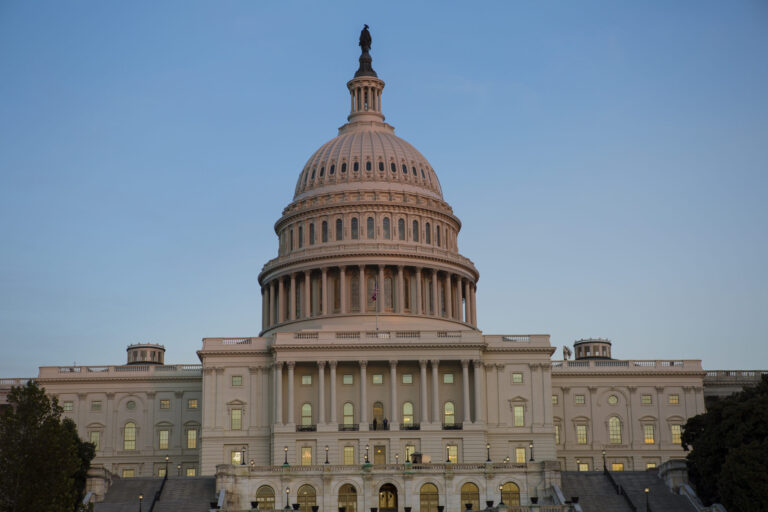MEMORANDUM
TO: Members of the Arkansas General Assembly
FROM: Jonathan Ingram and Nic Horton, Opportunity Solutions Project
DATE: March 25, 2015
RE: Reasons to reject Senate Bill 828
Senator David Sanders recently filed Senate Bill 828, co-sponsored by Representative Charlie Collins, Senator Jason Rapert, and Senator Jim Hendren. This bill would give state bureaucrats far-reaching authority to implement ObamaCare in Arkansas without any direct oversight by the legislature.
Senate Bill 828 gives unlimited power to bureaucrats.
Senate Bill 828 gives the executive branch the authority to apply for virtually any waivers it wishes. This authority would allow the governor to submit Medicaid waivers under Section 1115 or Section 1915 of the Social Security Act, or waivers under Section 1332 of the Patient Protection and Affordable Care Act (ObamaCare).
The bill then gives the Insurance Commissioner, the Department of Finance and Administration, the Department of Human Services, and the Arkansas Health Insurance Marketplace blanket authority to adopt regulations to implement those waivers. The Arkansas Health Insurance Marketplace, the state’s ObamaCare exchange, may even adopt rules without following the rule making processes required by the Arkansas Administrative Procedure Act. The Department of Human Services may also adopt other waivers and even amend the Medicaid state plan without legislative oversight.
Senate Bill 828 abdicates legislative responsibility.
Senate Bill 828 gives the executive branch virtually unlimited authority with no meaningful legislative oversight. Most disturbing is the fact that some of the bill’s defenders have falsely said that the bill actually requires legislative approval. Sadly, the bill’s express language confirms this is not the case.
Senate Bill 828 provides that “any waiver submitted [by the governor] under this section shall have legislative approval” to implement those waivers. The bill does not say that waivers shall require legislative approval, but that they shall be deemed to have already received legislative approval.
If the bill’s sponsors wished to require legislative approval, they could have done so. In fact, one of the cosponsors was the chief sponsor of Act 46, which did provide such a requirement. Act 46 provided:
“Under no circumstances may Medicaid eligibility be extended past December 31, 2016, for the current Medicaid expansion population under the Health Care Independence Program … without express legislative approval through a proper enactment of law by the General Assembly.”
Similar language could have been inserted into Senate Bill 828 if the bill’s sponsors intended to require legislative approval. But, as written, the bill gives blanket, unchecked authority to state bureaucrats.
In fact, the bill’s express purpose is to provide state officials with authority to implement these waivers. Senate Bill 828’s introductory paragraphs state that the bill is needed to provide “evidence of state legislation that provides the state with authority to implement the proposed waiver” under Section 1332 of ObamaCare.
Current law requires legislative approval of the types of waivers authorized under Senate Bill 828. If the bill actually required legislative approval, as contended by some supporters, it would simply reflect existing law. But Senate Bill 828 specifically says that current law is “insufficient in providing the authority” to apply for and implement waivers under Section 1332 of ObamaCare. Senate Bill 828 gives that authority to state officials. If that was not the intent, the bill would have no purpose whatsoever.
Senate Bill 828 allows the “Private Option” to continue indefinitely.
Senate Bill 828 would allow the governor to apply for Medicaid waivers under Section 1115 or Section 1915 of the Social Security Act or waivers under Section 1332 of ObamaCare. The Department of Human Services would also have blanket authority to amend the Medicaid state plan, accept waivers, or adopt “any other rules” related to Medicaid.
This blanket authority supersedes clear instructions provided by Act 46. State law currently requires the Department of Human Services to amend the state plan to eliminate the “Private Option” Medicaid expansion effective December 31, 2016. The Medicaid expansion’s termination can only be reversed by a “proper enactment of law by the General Assembly,” as explained earlier.
But Senate Bill 828 would supersede Act 46, serving as a “proper enactment of law by the General Assembly” that allows the Department of Human Services to continue the Medicaid expansion indefinitely.
Senate Bill 828 traps Arkansas in an ObamaCare straight jacket.
Senate Bill 828’s introductory paragraphs argue that Section 1332 waivers will allow “state-based solutions” that are “inherently more efficient, more effective, and less costly” than ObamaCare. But these waivers are hardly an escape hatch from ObamaCare’s onerous mandates. In fact, a Section 1332 waiver would serve as little more than an ObamaCare straight jacket, tying the hands of Arkansas legislators and taxpayers for years to come.
Section 1332 waivers, which were created by ObamaCare, exist only to make welfare policy even more liberal than ObamaCare itself. If Arkansas applied for one of these waivers, it would need to provide benefits at least as generous as ObamaCare, cap cost sharing at least as low as ObamaCare, and cover at least as many people as ObamaCare.18 Worse yet, experimenting with these waivers would put state taxpayers at risk for cost overruns for federal programs. In other words, states can receive waivers to make ObamaCare worse, but never better.
In fact, Obama administration officials and advisors have proclaimed that these waivers serve as a backdoor to implement welfare policies that are even more liberal than ObamaCare. And that’s exactly what states have attempted.
The state of Vermont tried to use a Section 1332 waiver to implement a single-payer, universal health care system. The state hired ObamaCare architect Jonathan Gruber to help design the new system. After nearly four years of trying to find a way to make the proposed waiver work, Democratic Governor Peter Shumlin was forced to abandon the plan altogether.
Even if the proposed waiver could have kept costs in line with official estimates, it would have required a new 11.5 percent payroll tax on businesses and a new income tax on individuals topping out at 9.5 percent.
Reject Senate Bill 828 and allow the ObamaCare expansion to expire.
Arkansas’ ObamaCare expansion has been a political and policy disaster. Arkansas lawmakers took an important first step to terminate the “Private Option” earlier this session. To ensure that the Medicaid expansion actually ends on schedule, lawmakers should be focused on ways to slow the program’s growth over the next two years, not writing blank checks to state bureaucrats that keep ObamaCare expansion forever.
Senate Bill 828 would reverse the progress Arkansas has made towards ending the Private Option, undercutting the work of the Medicaid task force and subverting the will of Arkansas taxpayers. If that weren’t bad enough, Senate Bill 828 would cement ObamaCare into state law forever and has the potential to make ObamaCare even worse than it already is. Senate Bill 828 should be rejected in its entirety.
Download This Memo Here.



